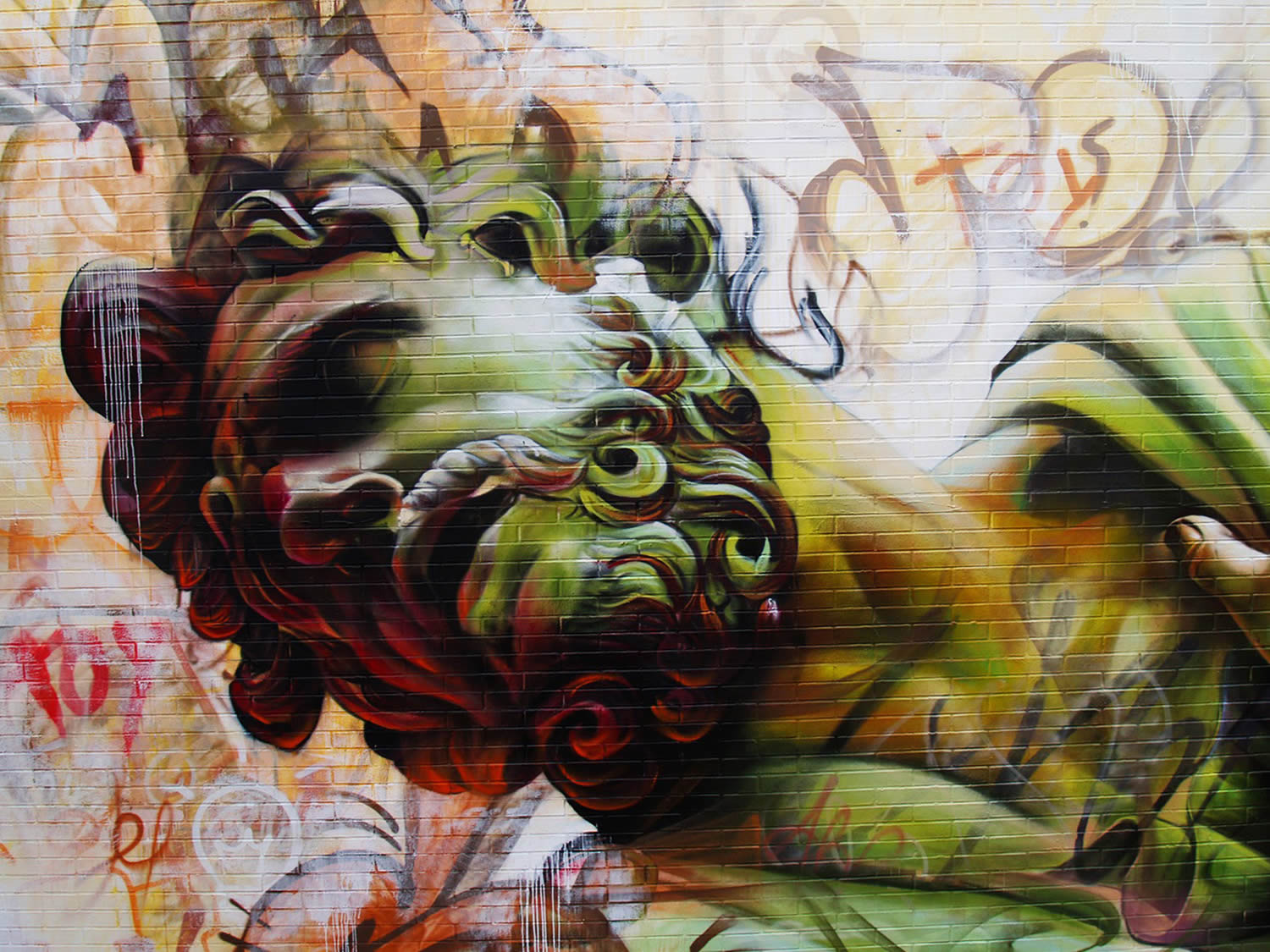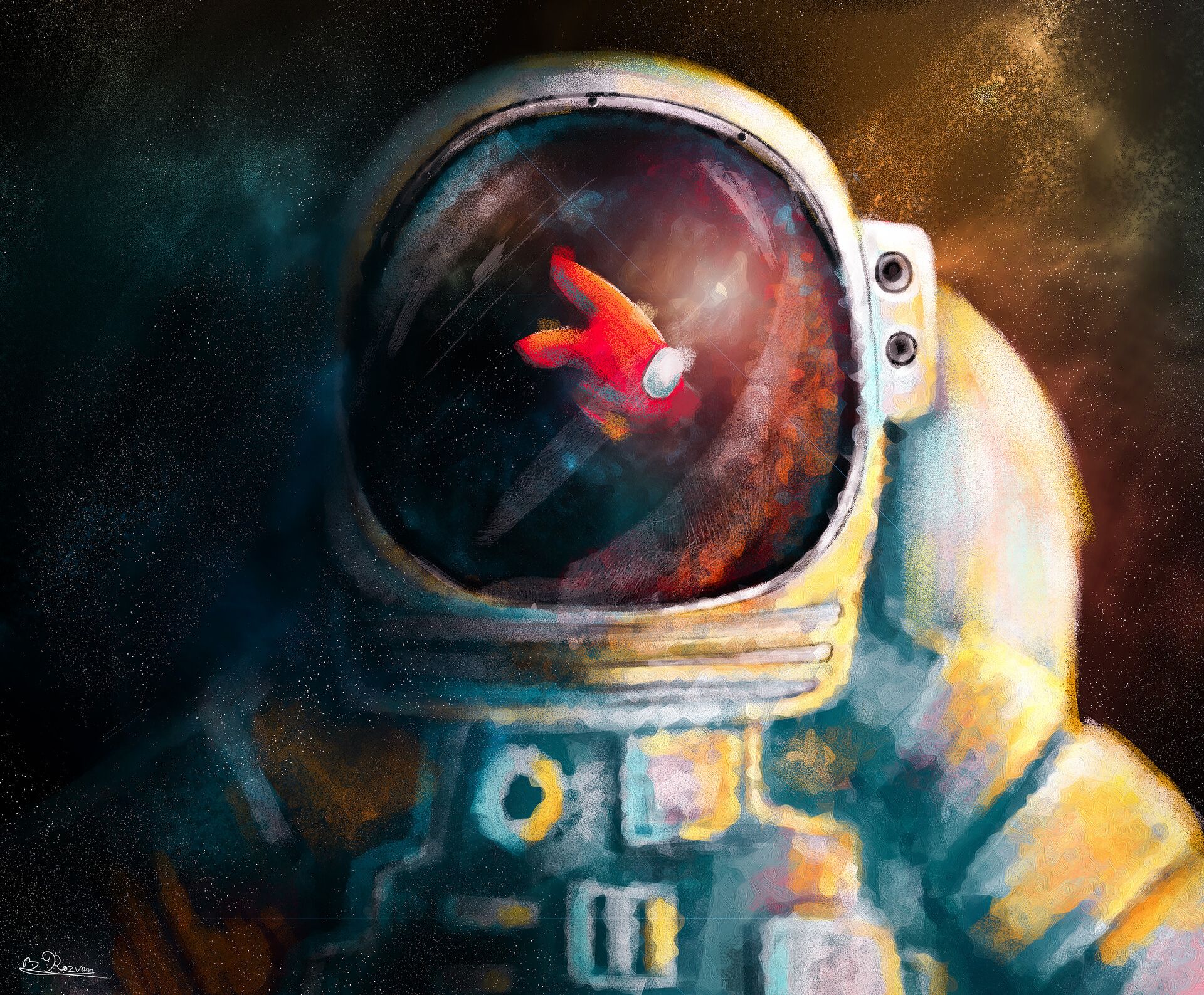The conditioned self is ‘the bad thing that has already happened to us without us realising that it has’. It’s a disaster that has befallen us which we don’t see as a disaster. But why is the conditioned self ‘a bad thing’? Why call it ‘a disaster’? It seems rather unfair to take this position – the CS doesn’t see itself as bad news after all and so why should we? Why should we be in such a hurry to disparage conditioned existence, which is something that is after all accepted quite happily every day by billions upon billions of people?
There are two answers we could give to this question. One is to say that the CS represents a very limited mode of existence (that’s what being conditioned means, after all) and that being arbitrarily limited in the way that the CS necessarily is has got to constitute bad news – how can living a life that is based on an arbitrarily limited version of who we are not be bad news? How can living a trivialised version of life (which is what all this comes down to) not be a disaster? How could we possibly be okay about getting a bum deal like this?
That’s the first answer we could give. The second answer is even blunter than the first – the second answer we can give is to point out that the CS isn’t just ‘limited’, it’s unreal. It’s a fictional entity which exists in a cartoon world, a cartoon world that is a projection of its own unexamined assumptions, and it can never be any more than this. To call this state of affairs ‘a limited one’ is being distinctly coy about it; we really ought to grasp the bull by its unreal horns and say it like it is – there is no such thing as the conditioned self or identity and when we live life on the assumed basis that there is then no good can come out of this. To uphold a lie is to deny the truth and that’s the long and the short of it. Reality doesn’t cut any deals and it’s a deal that we want! If we want things to be a particular way then we have to be willing to diverge from reality, to move away from it.
There are two sorts of world that we can talk about therefore – the world as it is and the world that we get when we slant everything to suit our own prejudices, our own biases. One is the unconditioned world (which is the world that hasn’t had any limits imposed on it, a world that hasn’t been interfered with) and the other is the world which has been all neatly parcelled up in our thoughts and concepts. The first is what we could call a ‘real world’ scenario and the second is a ‘formal world’, a world that has been designed or put together by thought. There is a fundamental difference between these two worlds – in the first case what we have is an Anaxagorean universe, a universe that embodies the Holographic Principle, whilst in the second case we’re looking at a strictly Aristotelian universe, a universe that is based on the principle of mutual exclusivity (i.e. either/or logic).
In the Anaxagorean universe Wholeness hides away in everything – even in a mote of dust Wholeness is lurking undercover, disguised – so to speak – by its ‘partial’ (or ‘fractional’) identity. This is a universe of surprises therefore, a universe where nothing can ever be ‘cut and dried’. This situation is – for this reason – an utter nightmare for the thinking (or ‘categorical’) mind. The Aristotelian universe is of course the situation which the phrase ‘cut and dried’ was invented for! In this universe (which is a formal world system) everything is ‘cut and dried’ and as a result there is no such thing is Wholeness. Wholeness exists as a concept, for sure, but not in any other way. We can’t have the real thing. Even if we were to add up all the parts making up a formal world system they still wouldn’t come anywhere near to adding up to a Whole; the Whole is always more than the sum of the parts, we could say. All the parts of a formal world add up to nothing. Out of illusion nothing but illusion can come.
In conditioned reality everything is made up of parcels or categories and in each parcel or category there is only what the label says there is – no more and no less – and this means that there are no real surprises to be had, not anywhere. The conditioned self exists as one category in a world made up of categories, therefore. There are for this reason no surprises to be found in the CS, just as there are no surprises to be found anywhere in the formal world, anywhere in the Aristotelian universe. This absence of surprises – both inside and outside of us – can be thought of as a very grave ‘limitation’ therefore. This is the ‘limitation’ of having no depth, the ‘limitation’ of having to be identical to whatever label it is that we have been given!
What we are coming to here is the convergence of the two reasons that we gave earlier as to why thinking that we are the conditioned self is – not to mince words – an out-and-out catastrophe rather than a positive outcome (which is how it is generally inclined to see itself). The first reason we gave for saying that the CS is a disaster was to say that it is a very limited way to live life. It is limited without us knowing that it is, and so this situation can hardly be said to have anything to recommend it! We have all this potential within us but we will never ever realize it – not in the conditioned world we won’t. We’re not allowed to realize it. We can’t ‘bring forth what is within us’ (as Jesus says in the Gospel of Thomas) because if we did that then we would no longer be the conditioned self, we would have discarded the conditioned self…
The second reason we gave for seeing the CS as ‘a disaster that has befallen us’ has to do with its unreality. Being wedded to an unreal notion of who or what we are is not a situation that has a good prognosis – out of illusion nothing can come but more illusion, as we said earlier! Everything we do (on the basis of this false idea of who we think we are) is no more than a pointless folly which we are unable to see as such. The error of ‘mistaken identity’ (as Wei Wu Wei puts it) is not going to redeem itself or correct itself no matter how long we persist with it. The only ‘cure’ is to ‘go back to the drawing board’, so to speak and this happens to be the one thing that we don’t want to do! ‘Going back to the drawing board’ means seeing clearly that the investment which we have made was made in error and that no good can ever come of it and we would rather do anything than see this. We are in full-blown denial about the ‘error’ that we have made and the more trouble we get into the more we are going to retreat from the awareness that maybe we’re mistaken about everything.
The two approaches come to the same thing, therefore- the world that is made of categories is not the real world (despite the fact that it is the only world we know). Even if we were to add up every single one of these compartments we wouldn’t end up with a Whole, we wouldn’t end up with anything real – if we don’t start off with Wholeness then we can’t end up with it. Reality can’t be partitioned in the way that it is in a formal system and yet still stay real. When we attempt to bring order to the world (which is to say, when we attempt to explain it to ourselves) we lose what it is that we are trying to bring order to, we lose what we are trying to explain. We’re trying to ‘explain away the Great Enigma’ and the only thing that comes out of this is our permanent submersion in a morass of self-deception; we are ‘successfully explaining the world’ only in our imaginations – in reality, we are making bigger and bigger fools of ourselves, driven as we are by our non-negotiable refusal to see that we started off on totally the wrong footing and that things aren’t ever going to get any better!
This is why we are always so hung up on the notion of ‘fixing’, on the notion of ‘winning out’, on the notion of ‘finding solutions’ to whatever difficulty it is that we are in. The very word ‘solution’ lifts our spirits, it buoys us up and fortifies us in the struggle that lies ahead. This is why – in the world of mental health care – we always adopt this crude aggressive terminology of ‘battling against depression’ or ‘overcoming anxiety’ or ‘beating addiction’, and so on. This is why we are so sold on ‘strategies’ and ‘tools’ and ‘solutions’ and ‘managing this’ or ‘regulating that’ – we’re fixers through and through, we’re trying to ‘fix’ life itself, if only we could see it. The one thing we don’t ever want to see is that ‘the bad thing’ has happened already, and that there is – for this reason – absolutely nothing that we can do about it…
Art: Nasimo







Susan
So glad to see these Nick words back! Thought I’d lost you 😊
zippypinhead1
Thank you Susan. I am very happy to be back again!